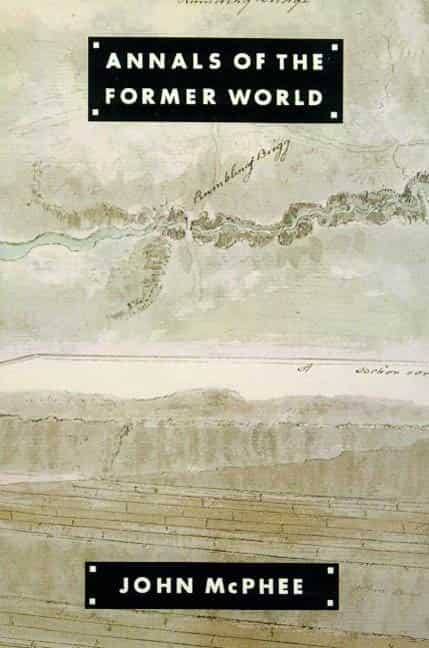I’m glad I’m not beyond the age where books I read can change the way I see the world. If that is an age you can reach, I don’t want to. I can’t even drive down the highway now without seeing something as simple as roadcuts in a whole different light.
This was McPhee making a study of that place where language and the earth overlap. Beyond excellent.
Note: this book compiles four different previously published titles: Basin and Range (1981), In Suspect Terrain (1983), Rising from the Plains (1986), and Assembling California (1992).
This description of Basin and Range applies to all of it:
This stretching and folding of language, by which the geologist does to words what endless eons have done to his rocks, excites Mr. McPhee to language experiments of his own. In “Basin and Range,” he is not so much a visiting amateur as a rhapsodist of “deep time” like Montaigne, who, centuries before James Hutton, celebrated the mind-stretching eons of change: “The world is but a perennial movement. All things in it are in constant motion—the earth, the rocks of the Caucasus, the pyramids of Egypt—both with the common motion and with their own. Stability itself is nothing but a more languid motion. I cannot keep my subject still. It goes along befuddled and staggering, with a natural drunkness.”
Montaigne is a fitting companion for Mr. McPhee, who has the same sort of miscellaneous temperament, the same fascination with odd bits of knowledge. Whether Mr. McPhee writes about bark canoes, the New Jersey Pine Barrens, the Alaskan wilderness or now the “Big Picture” of America’s geological history, he is offering us an oddly angled portrait of his own mind, an autobiography made up of shards and pieces, evoked in crisp adventurous prose. And the adventure finally is in the prose. In “Basin and Range” the perspectives and expertise of geology become a language for the drama of time. The result is a fascinating book.1
